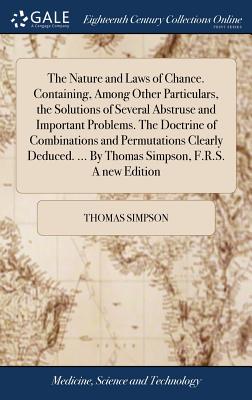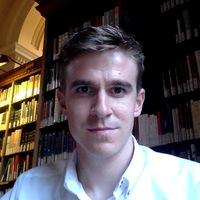

 Gale Ecco, Print Editions
Gale Ecco, Print Editions
The Nature and Laws of Chance. Containing, Among Other Particulars, the Solutions of Several Abstruse and Important Problems. The Doctrine of Combinations and Permutations Clearly Deduced. ... By Thomas Simpson, F.R.S. A new Edition


Key Metrics
- Thomas Simpson
- Gale Ecco, Print Editions
- Hardcover
- 9781379800330
- 9.21 X 6.14 X 0.31 inches
- 0.73 pounds
- Medical > History
- English
 Secure Transaction
Secure TransactionBook Description
Medical theory and practice of the 1700s developed rapidly, as is evidenced by the extensive collection, which includes descriptions of diseases, their conditions, and treatments. Books on science and technology, agriculture, military technology, natural philosophy, even cookbooks, are all contained here.
++++
The below data was compiled from various identification fields in the bibliographic record of this title. This data is provided as an additional tool in helping to insure edition identification:
++++
British Library
T077357
With a final advertisement leaf.
London: printed for F. Wingrave, successor to Mr. Nourse, 1792. [2], iv,95, [3]p.: ill.; 8�
Author Bio
Thomas Simpson's research lies at the intersection of imperial history, the history of South Asia (and its borderlands), the history of science, environmental history, and historical geography. It centres on colonial knowledge of space, environment, and people during the long nineteenth century, looking especially at how information was produced, communicated, and contested in 'field sciences' such as cartography and anthropology.
Having focused primarily on colonial India's frontier regions during his PhD and early postdoctoral career, Dr. Simpson's recent and ongoing research considers upland spaces and empires in modern Asia more broadly. From 2020 to 2024, he will work on the Leverhulme-funded project 'Making Climate History' in the Departments of Geography and Department of History and Philosophy of Science at Cambridge, examining changing understandings of climate across various scientific disciplines and diverse sites around the globe from c.1780 to c.1980.
Source: University of Cambridge
Videos


Community reviews
Write a ReviewNo Community reviews